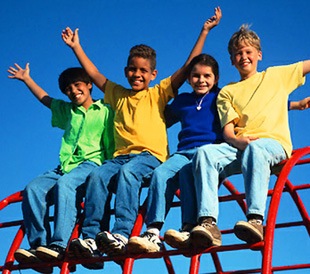 Howard Chudacoff, a cultural historian at Brown University, recently published a history of child’s play arguing that for most of human history what children did when they played was roam in packs large or small, engaging in freewheeling imaginative play: “They improvised their own play; they regulated their play; they made up their own rules.”
Howard Chudacoff, a cultural historian at Brown University, recently published a history of child’s play arguing that for most of human history what children did when they played was roam in packs large or small, engaging in freewheeling imaginative play: “They improvised their own play; they regulated their play; they made up their own rules.”
But, in the second half of the 20th century, Chudacoff says, the way that children spend their time has changed. A growing number of psychologists believe that these changes in what children do has also changed kids’ cognitive and emotional development.
It turns out that all that time spent playing make-believe actually helped children develop a critical cognitive skill called executive function, which allows them to control their emotions and behavior, resist impulses, and exert self-control and discipline.
(READ or listen to the story at NPR News)



















